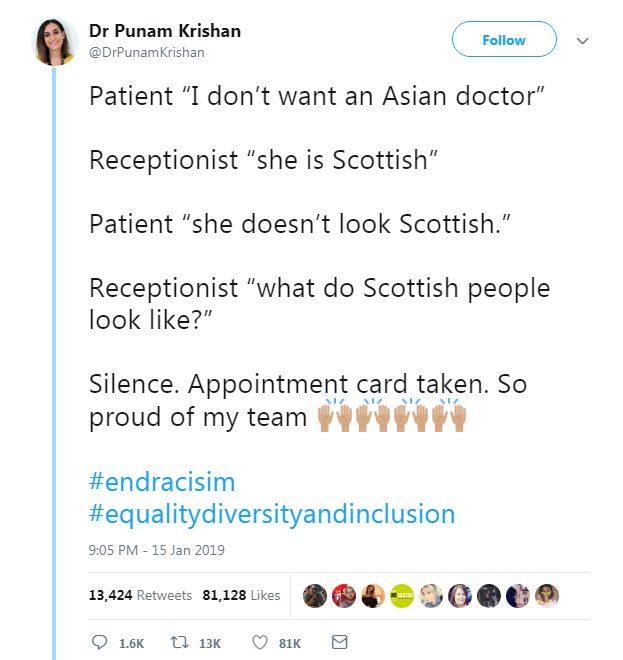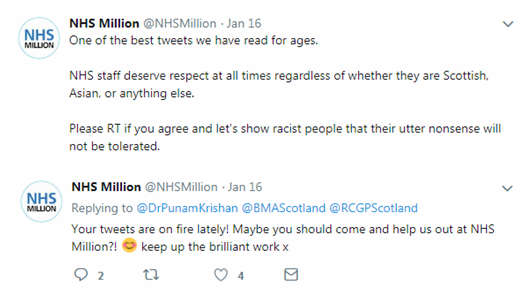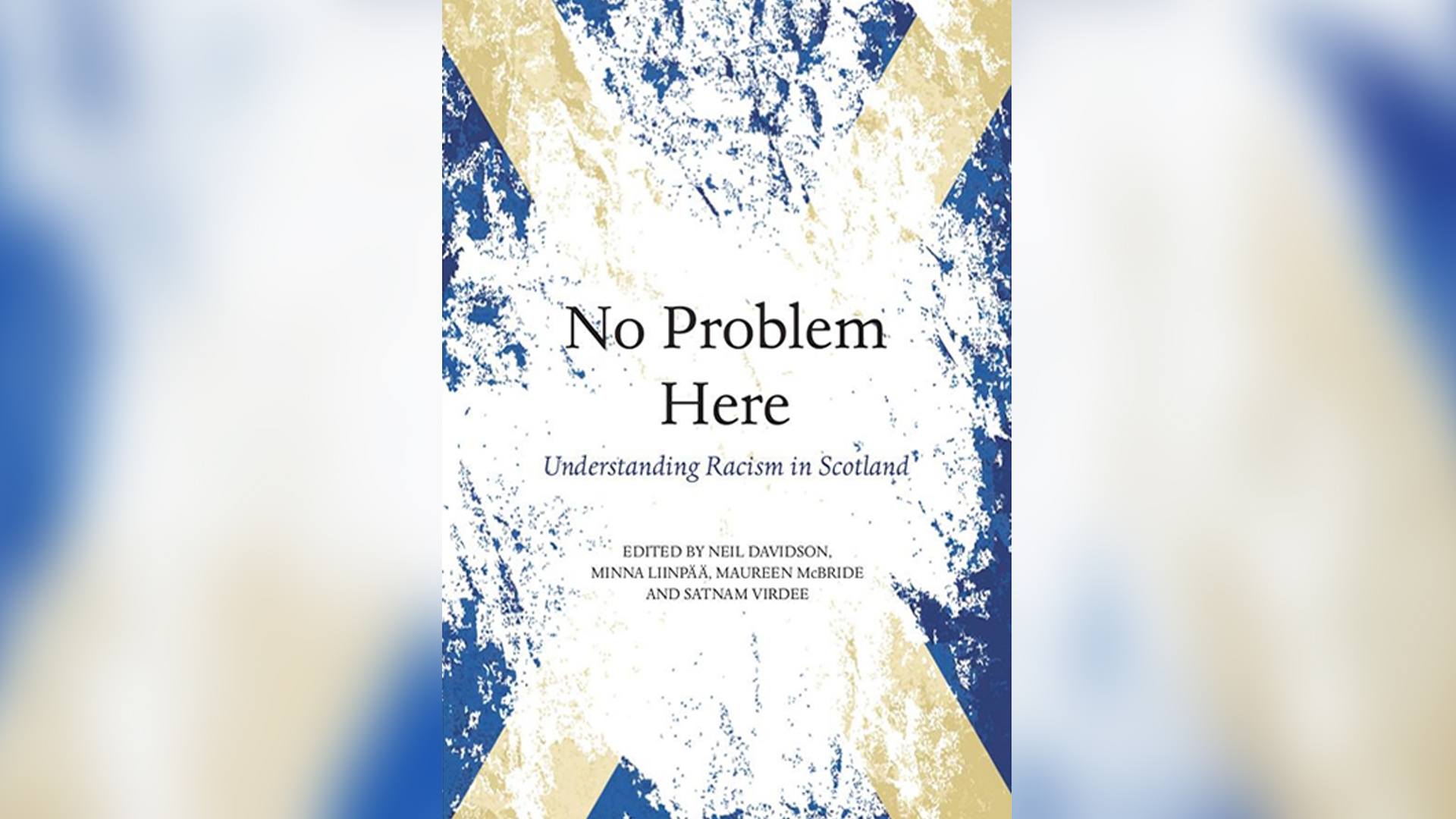Patient's aversion to 'Asian doctor' prompts racism debate in Scotland
A patient's aversion to being treated by an "Asian doctor" at a Glasgow hospital, who was eventually put in place by a receptionist, has triggered a debate about racism in Scotland.
Dr Punam Krishan, a Scottish general practitioner of Indian descent employed with the National Health Service (NHS), publicly praised the receptionist for taking on the evidently racist patient.
Expressing her pride in her team on Twitter, Dr Krishan on Tuesday described the conversation between the patient and her receptionist:


This silenced the patient, who then quietly took their appointment card without further argument.
"I am aware that it happens across the board but we rarely talk about it," she told BBC Scotland. "There is no reason or place for it."
Her Twitter post immediately struck a chord with many in Scotland and elsewhere who rallied in her support.

The NHS Million, which describes itself as a grassroots campaign run by NHS staff, complimented the doctor for highlighting the matter.

Dr Krishan described the phenomenal response to her post, which has been liked by more than 80,000 people in the past 48 hours, as "uplifting."
"I have had a very positive response which is so uplifting. Scotland is my home. It is beautiful, multicultural, diverse nation and ultimately we all need to work together for something like the NHS," she said.
"Disease does not pick a gender and disease does not pick a color. When you strip it back we are all human," she added.

While some Twitter users attempted to tacitly justify the evidently racist behavior of the patient by drawing a distinction between prejudice and racism and describing Scottish as an ethnic identity, they were immediately countered by others.

Some also suggested that the NHS DP should have refused to attend to the "racist" patient. However, Dr Krishnan didn't agree.
"It is important to treat the person before me and see that they are safe and well," she told BBC, stressing that she does not discriminate between patients.
"It is not right to turn someone away who needs help. My receptionist put this person in their place and they left with some food for thought," she added.

'Misleading fantasy'
The episode is yet another reminder of racism in Scotland after a book published by the University of Glasgow last year kick-started a critical examination of the issue in a country that prides itself for its inclusiveness.
The idea of "Scottish exceptionalism," a belief that the country is immune to racism and "culturally different" to England, is a "misleading fantasy, built up on a mixture of political convenience and well-meaning ignorance," argued "No Problem Here: Understanding Racism in Scotland," edited by Neil Davidson, Minna Liinpaa, Maureen McBride and Satnam Virdee from the university.
According to the 2011 census, the size of the minority ethnic population in 2011 was just over 200,000 or four percent of the total population of Scotland; this has doubled since 2001 when just over 100,000 or two percent of the total population were from a minority ethnic group.
Asians comprised the single largest minority ethnic group comprising 67 percent of the total ethnic population followed by Africans as the second largest group representing 14 percent.
In Glasgow, the country's most populous city, the minority ethnic population was around 12 percent, while in capital Edinburgh and Aberdeen it was eight percent and in Dundee City it was six percent.

"No Problem Here: Understanding Racism in Scotland, a book published by the University of Glasgow in March 2018, argued that "a better Scotland will only be built by confronting the evil of racism rather than pretending it does not exist." /Photo via University of Glasgow
In the book "No Problem Here…", Davidson pointed out that there is a "relatively small size of the migration to Scotland from the Indian sub-continent and especially from the Caribbean," which, he argued "did not mean that migrants did not suffer racism, just that it was much less visible than in Birmingham or London."
"There's a perception that Scotland has less of a problem with racism than other areas of the UK… But regardless of popular opinion, the statistics suggest otherwise," Carol Young, senior policy officer for the Coalition for Racial Equality and Rights (CRER), wrote in the book.
At the end "No Problems Here…" argued that "a better Scotland will only be built by confronting the evil of racism rather than pretending it does not exist."